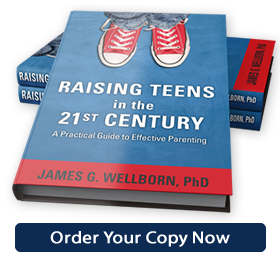Dec 04, 2012 New Year’s Eve
It’s the biggest party night of the year when everyone is encouraged to throw out the past and celebrate the wondrous possibilities inherent in a new beginning. Out with the old, in with the new! Put the past behind you. Look to the dawn of the very first day of a new year! Start the New Year with a bang! Party like its 1999! (Man, I’m getting old! Is Prince still even alive?) What are you going to do with the kids?
The best protection against your kid celebrating inappropriately on New Year’s Eve is to keep them in the house while you remain sober and constantly vigilant to suppress any attempts at inappropriate frivolity or socializing (e.g., escape). But, if you are foolish enough to want to help your kid learn about reasonable ways to celebrate . . .
Talk about celebrating responsibly. In this country, New Year’s Eve is THE event of the year where your kid can figure out how to party in a responsible and appropriate way. Their views will be directly affected by what you say. Have a conversation with your kids about how to celebrate. Talk about fun and the problems of excess. What is too much? How do you make sure that your fun doesn’t mess up other important areas of your life (e.g., relationships, job, freedom)? How far is too far? How do you decide? What responsibilities do you have to others in setting limits on yourself (e.g., embarrassment or inconvenience to spouse or significant other, friends, community)? What is right (and wrong)? These are the decisions they are (supposed to be) making as they determine their own limits. (This is not the time to brag to your kid about the drunken, drug fueled revelry of your youth; or, worse, last year. Save this for when they are 25.) If your kid thinks they have to get wasted to have a good time, you have failed them. But, talking ain’t enough.
How YOU celebrate matters. Your kids are watching. It is difficult to maintain credibility if you violate the guidelines you have promoted as healthy and appropriate. Follow your own guidelines. (This Adult Role Model thing is a real pain when you want to just cut lose and violate a few social norms. It was a lot easier when they were young kids and you could just put them to bed and hire someone to babysit.)
How young is too young? You’re never too young to have fun. Your kid can, however, be too young to be at a party where adults are drunk, irresponsible or out of control. Setting limits on your kids at various ages is for their own good. It can also save you trouble in the future. If you let your kid participate or just be present at a party where people are celebrating as adults don’t be surprised when they begin to think they can also make other decisions like they are an adult (e.g., curfew, following rules, sex, etc.).
- For kids younger than 16, parties they attend should be organized (and monitored) to model appropriate behavior. Fourteen and 15 year olds can even benefit from being given responsibilities as role models for younger kids. This may require you to set up an appropriate party for them with adult supervisors. The point of partying at this age is to learn to party without using recreational substances.
- For 16 to 17 year old kids (high school sophomores and juniors), think in terms of opportunities for them to practice balancing fun with responsibility. This would mean greater freedom, limited access to extremes of party behavior and intermittent monitoring. This is the age where teens and adults will be at the same party, teen parties that are loosely (but responsibly) supervised or small group of teen friends (who don’t have a history of alcohol or drug use or major mischief) on their own but checking in regularly across the evening. It is generally a bad idea to mix teens younger than 18 with young adults (i.e., college age kids). What is typical for a young adult is trouble for a teen. Unfortunately, your older teen will be DESPERATE to party with the young adults. That time will come.
Review expectations for parties. So you have decided they can go to a party (including being at a party where you are also present). Talk to your kids about what you expect of them? Tell them what will happen if they step across the lines. Important categories for discussion include:
- Expectations about alcohol or drug use
- Dealing with temptation (e.g., alcohol or drugs, sex, property destruction, rock and roll, etc.). Consider having them demonstrate how they will refuse the invitations to use alcohol or drugs or to engage in risky behavior. (Role playing is always a fun way for you to make teens prove they can turn down drugs and sex. They can’t say they didn’t know how AND it really ticks them off! It’s very funny.)
- Who they are with and where they will be. What are your rules about wandering around at night (and making mischief)? Are they supposed to call you first and let you know?
- Check in schedule. Your kid needs to be where they are supposed to be with who they are supposed to be with. Make it clear when they are supposed to check in. Make it every 2 hours or so (to interrupt them just about the time they are getting into trouble). Let them know what will happen if you don’t hear from them (like you will suddenly show up and start hollering their name).
- Emergency exit plans. How are they (with or without your discreet help) going to deal with a situation that starts to turn bad while still saving face?
- Post party alcohol and drug testing. Let your kids know that if you have any suspicions of recreational substance use there will be testing (readily available at your local supermarket or online).
Find a teen New Year’s Eve party. There are often sincere, well-meaning adults who are committed to providing a place for teens to have an alcohol and drug free good time on New Year’s Eve. Religious youth ministries, youth organizations, local teen clubs. See what you can find. If it is legitimate, you and your teen are set.
Host a teen New Year’s Eve party. If you are INSANE, the best way to keep an eye on your kid at a party is to have it at your place. This is extremely risky since you are liable for anything that happens to kids who attend (injured, leave under the influence and get hurt, etc.). In any case, don’t plan on much fun for yourself this New Year’s. On the other hand, someone’s got to do it. Here are some things to consider.
- Give your kid as free a hand in the planning as possible.
- Greasy, high fat, junk food and high sugar (and, oddly, high caffeine) beverages. Remember, this is not a healthy eating event (unless your kid and their friends are into that).
- Think in terms of activity stations
- Interactive video games (guitar hero, anything with a Wii or Xbox Kinect). It’s structured. It’s active. It’s social. It doesn’t require conversation. First person shooter games should be banned unless there is more than one video game station; not because of any personal objection to violence but because it is boring for others to watch for any length of time and some of the guys will become hypnotized
- Movies, especially slasher movies. Have a movie going on one of the TVs. It needs to be a movie that doesn’t require you to follow the story line too closely and that people can scream and have dramatic reactions to.
- Music, loud. Keep the music going at a high volume. You might even find a teen band willing to play a set during part of the evening.
- Active games that can be mildly competitive but played by anyone like ping pong (buy or borrow a table), foosball, pool table (if you have one), twister (yes, twister), dart board, etc.
- Fireworks (where legal). Some idiot (typically) boy is going to try to shoot the projective fireworks at another (typically) guy. Think safety (hose already linked to the faucet, non-projectile fireworks, etc.)
- Establish ground rules for substance use, coming and going, conflict, respect for neighbors, etc. Announce it early on when most kids have arrived.
- Have a celebratory beverage. It can feel like it defeats the whole purpose to just drink something that has already been available. Consider carbonated juices (in the fancy bottles) or the like.
- Clarify with your kid what you will do if you discover someone is under the influence. (The answer to this may end the discussion for having a party before you begin.)
- Have plans for unwanted guests. You need to consider that a group of big ole trouble making teenage boys may show up.
- Monitor from a distance.
- If there is a problem, let your kid know you expect them to intervene. (This is part of their practice becoming an adult and asserting themselves in awkward or difficult situations.) Call them aside and decide what they need to do about the problem. You may still need to get involved if your kid doesn’t address the problem, needs you to be the heavy (“My dad is such a jerk!”) or is in over their head.
To let them drink or not drink. One drink is not going to kill your kid. New Year’s is a special occasion. Drinking a toast is a time honored tradition. It’s not like one drink will make them suddenly start downing all the booze in the house. Right? Well, it is a little more complicated than that. You have now reinforced the idea that celebrating requires alcohol. It is now associated with fun and good times. (This is even more so if the adults have been drinking across the night.) Letting your kid drink “this one time” has now associated drinking with being an adult (so if a kid wants to feel grown up . . .). Celebrating has been transformed from a time to revel in each other’s company and look to the year ahead to an opportunity to drink (since there are virtually no other times of the year you allow them to drink). If you are going to let your kid have a drink of alcohol, it is probably better to do it when nothing special is going on and not let them drink to celebrate something. Don’t forget that, whatever else, New Year’s is a time for . . .
Reflection. Take time as a family to think about the year past and the year to come. Look back on all the accomplishments of the year; successes, lessons learned, new skills, enjoyable experiences, difficulties overcome (or survived), everything for which you are (or should be) grateful. Look forward to the possibilities that await you; challenges, opportunities, plans and goals, ways to find real meaning in life.
HAPPY NEW YEAR!




